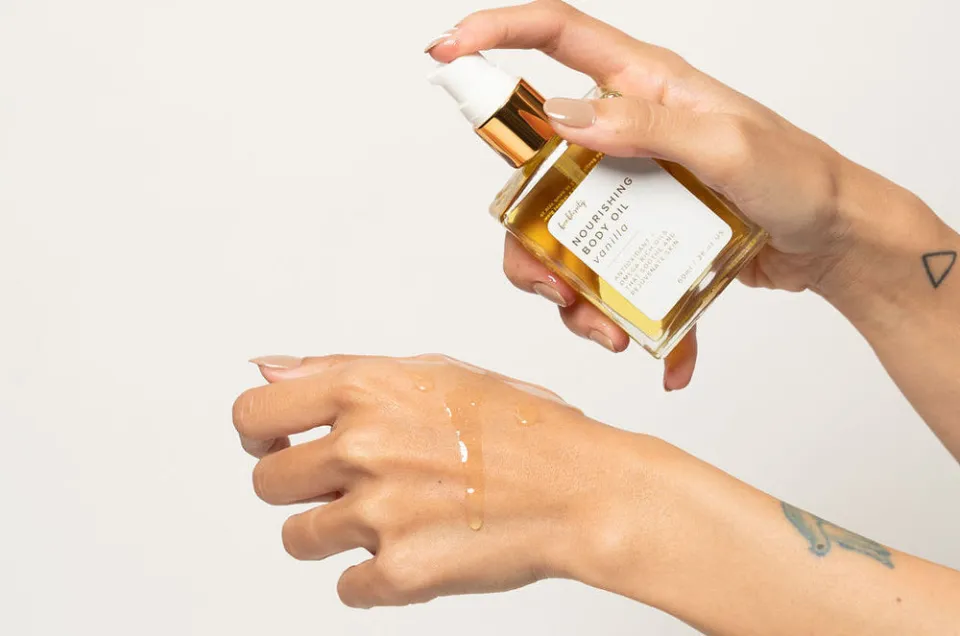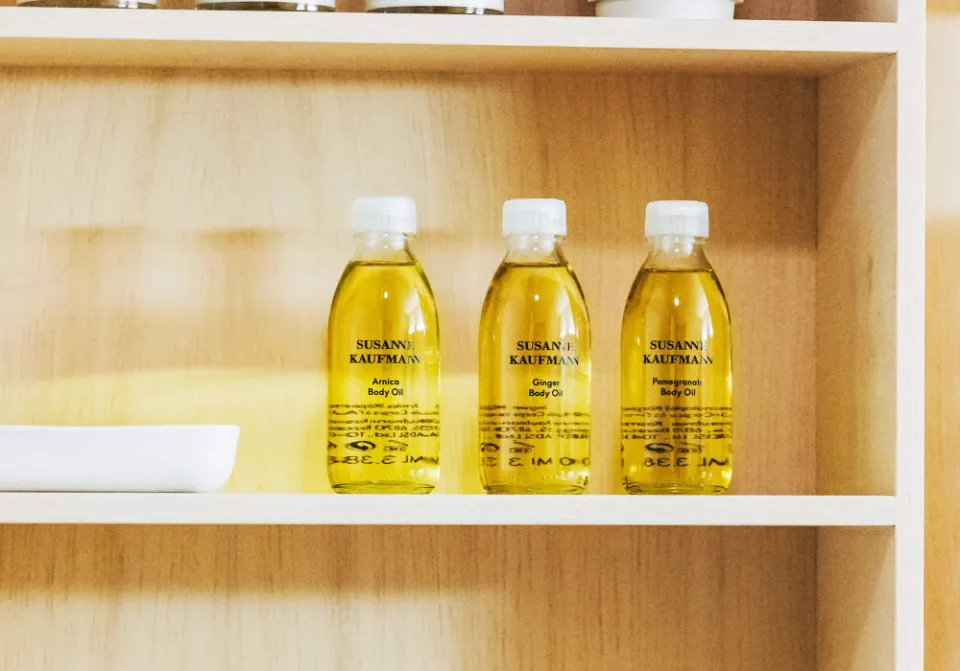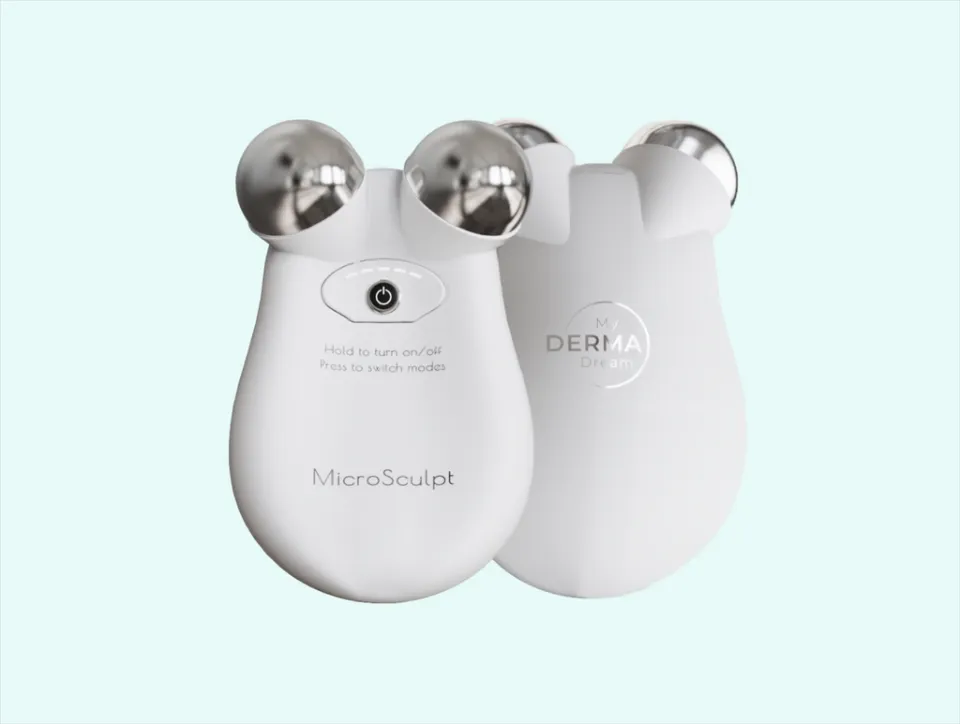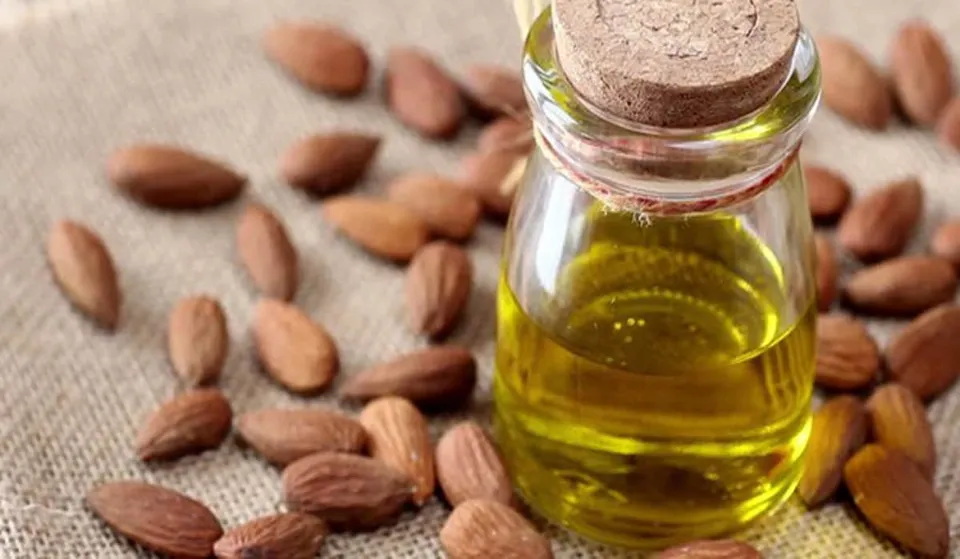Body oil ought to be your go-to body moisturizer for self-pampering if you genuinely want to hydrate your skin barrier and relieve dryness. Do you know what is body oil?
Body oils are usually oil-based and enriched with natural oil extracts from such things as seeds, fruits, and vegetables. Body oils’ smooth texture comes from these essential components.
Are you interested in the benefits that body oil can provide for you? Continue reading to find out exactly what body oil is, how to use it, and why it’s the best option for maintaining the health of your skin over the long term.
What is Body Oil?
Body oil is a body care product made from oils that nourish, protect, and hydrate the skin.
Lightweight body oils are formulated to absorb quickly into the skin, leaving even the driest skin feeling soft, smooth, and hydrated.
When used alone or layered over body lotion, body oil also gives skin a glowing, healthy appearance.
Also Read:
What is Body Oil Used For?
Given that you have a better understanding of what body oil is and how it differs from body lotion, let’s look at some of its advantages and applications.
Provide Deep Hydration

Deep hydration is one of the most obvious, right-advantageous effects of body oil.
Additionally, they contain a lot of vitamins, minerals, and fatty acids that, when used consistently over time, can revive extremely dry skin and increase elasticity.
Seal in Moisture
Body oil’s occlusive qualities make it particularly effective at retaining moisture.
When your skin is damp from a shower or bath, body oil does an amazing job of locking in the moisture that’s already there.
In order to lock in and improve the moisturizing properties of your body lotion, you can also use body oil.
Nourish and Protect With Antioxidants
Numerous organic botanical oils used as body oils are rich in potent antioxidants that nourish the skin and shield it from oxidative damage.
These oils frequently contain vitamins A, C, and E, which have wonderful advantages for increasing collagen production and preventing premature aging.
Smooth and Soften Skin
Due to their ability to mimic the natural lipids found in our skin’s natural barrier, natural botanical oils are fantastic for nourishing and softening the skin.
Lipids fill in the spaces between our skin cells that are brought on by a lack of moisture, resulting in a softer and smoother surface.
Lipids also help to retain moisture in the skin, which both immediately and gradually lessens dryness, flakiness, and scaly patches.
Related Reading:
How to Use Body Oil for Maximum Benefits?

If you’ve never used body oil before you might be wondering when is the best time to use it.
Here are some key points on how to use body oil to its full potential.
Adding to Your Bath
To your bathwater, add a few drops of body oil. As you soak in a soothing bath, this enables the moisturizing process to begin.
Massaging into Your Skin
As part of your skincare routine, take a small amount of your body oil and massage it directly into your skin.
A small amount of oil applied to your cuticles and nails will add a light sheen and alleviate any dryness.
Using as a Moisturizer
Applying a couple of drops of oil all over your skin will help you retain moisture and achieve supple skin that feels soft all day. When your skin is damp, apply the oil and pat it in.
If you are interested in DIY body oil at home, please read How to Make Shimmer Body Oil.
Who Should Use Body Oil?
Body oils are universal and almost anyone can use them regardless of skin type.
For those with a drier skin type who are prone to eczema or rosacea can find relief with a natural organic body oil where their skin may naturally produce fewer oils than others, they help to lock in and retain moisture whilst replacing the oils the skin may struggle to produce.
The addition of nourishing body oils is just one more wonderful way to focus attention on parts of the body that are frequently disregarded for other types of skin.
They are also a quick and easy way to improve your self-care practices and treat yourself!
Body Oil Vs Body Lotion
How does body oil differ from body lotion? The main differences between body oil and body lotion is that body oil provides the skin with more healthy ingredients.
While body oil is made primarily from skin-loving oils, body lotion often contains as much as 80% water.
Natural body oils are made from botanical oils that have a high fatty acid content. The fatty acids in natural body oil, which range from omega-3, 6, and 9 to oleic and linoleic acids, are crucial for fortifying the skin barrier and warding off early aging.
Body lotions, on the other hand, primarily contain humectants, which entice moisture to the skin.
The high concentration of fatty acids and other advantageous nutrients that body oils have allow them to provide the same long-lasting benefits while also being helpful for skin barrier function.
Takeaway: What is Body Oil
Body oil is universal and almost anyone can use them. They have amazing skin-care properties, including moisturizing and hydrating, reducing inflammation and irritation, anti-ageing qualities, and skin firming and smoothing.
Incorporating body oils into your skincare and body care routine will help in maintaining radiant, nourished, and youthful-looking skin.
The most advantageous organic oil for you and the health of your skin is one that is suitable for your skin type and offers the greatest benefits.
Start incorporating body oils into your body care regimen for the best possible self-care and radiant, healthy skin!
Read More: Neutrogena Body Oil Reviews
FAQs
Is Body Oil Good for Sensitive Skin?
For sensitive skin, natural body oils work best. You want a body oil that is hydrating but not overpowering if your skin is sensitive. A good illustration is sesame oil, which is both light and nourishing.
Can Body Oil Be Used on Face?
It is not advisable to use body oil on your face.
Do You Put Body Oil on Wet Or Dry Skin?
We always recommend applying the oil to skin that is still damp or wet.




